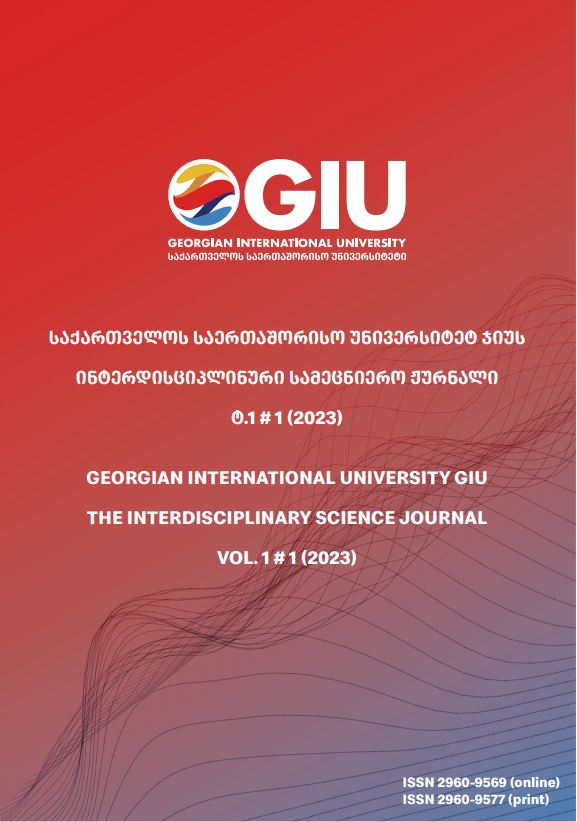LEGAL REGULATION OF CRISIS MANAGEMENT AND PROBLEMATIC ISSUES OF HUMAN RIGHTS DURING COVID 19
Main Article Content
Abstract
The research was carried out within the framework of the research that the Georgian International University funded and this research was about problems of human health and human rights during covid 19 and international guarantees. The research is complex and examines the above-mentioned problems from several angles, namely: in the context of crisis management during a pandemic, in the context of human rights, etc. Also, we fully analyzed legislative changes that were made during a pandemic and their impact on human rights. The pandemic created an extraordinary situation and the need to make quick decisions made it difficult to strike fair and balanced conditions between human rights and health care interests. To establish a fair balance, together with the democratic development of the country, the stability and competence of the institutions were also decisive.
The pandemic has forced European countries to implement additional measures. Most of them have not declared a state of emergency and they faced the pandemic with ordinary regulations. The reason for declaring a state of emergency in Georgia was not COVID-19, the main reason was the lack of appropriate legal regulations. The right to protection of personal data, among many other rights, has been put at risk during the Covid-19 pandemic. A particularly large amount of personal data related to health status was being processed. Personal data was processed not only by state institutions but also by private companies (for example, during thermal screening). The work and teaching process moved to the online mode, which has led to the processing of a particularly large amount of personal data. To prevent the spread of the disease, several online applications have been created and the geolocation data of millions of people has been processed. Within the framework of the research, the analysis will be made on the legal basis of the restrictions introduced by the state in the conditions of the pandemic, which will help in the future to establish the response mechanisms of the states to solve similar emergencies in such a way as to exclude confusion, chaos and inconsistent actions in crisis conditions. Violence against women has become a special challenge. The criminal justice statistics in the country already revealed a not-so-favorable situation in this regard, although the impact of the COVID-19 pandemic practically had its impact here as well, which is one of the subjects of our research.
